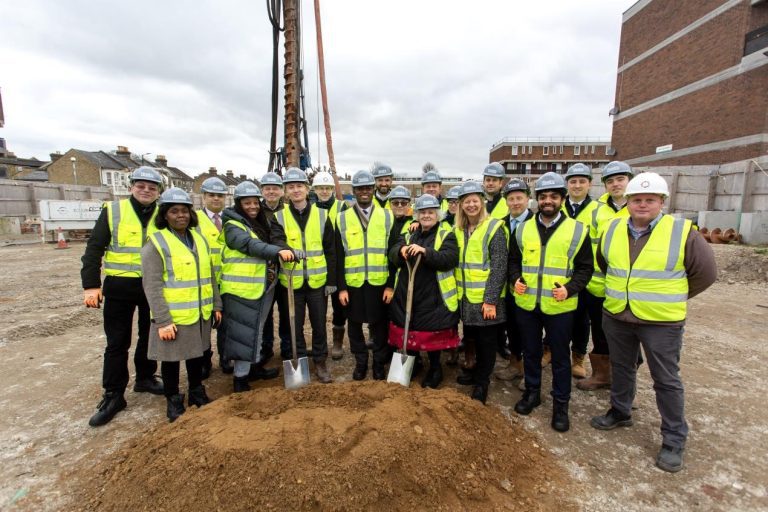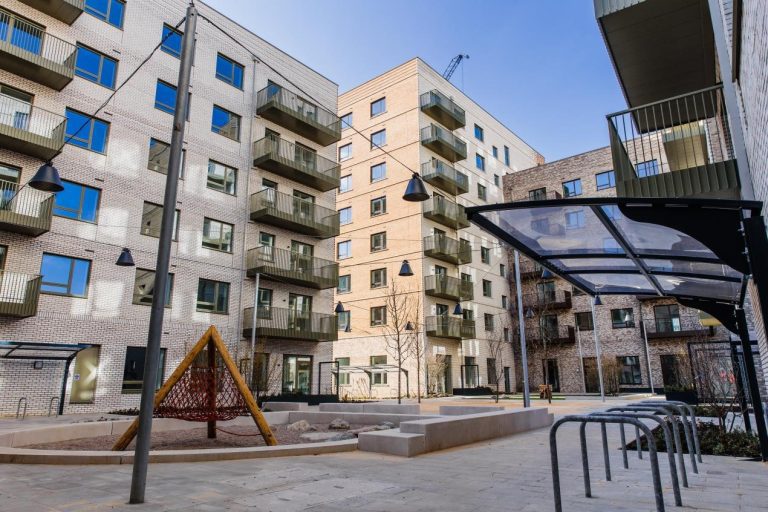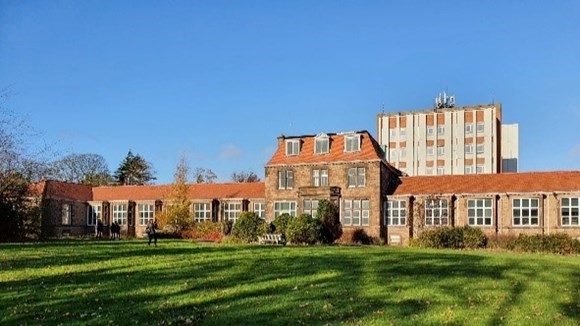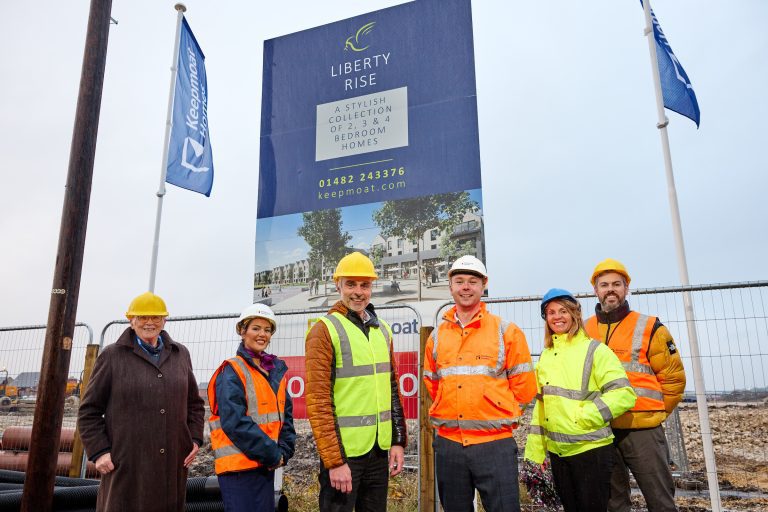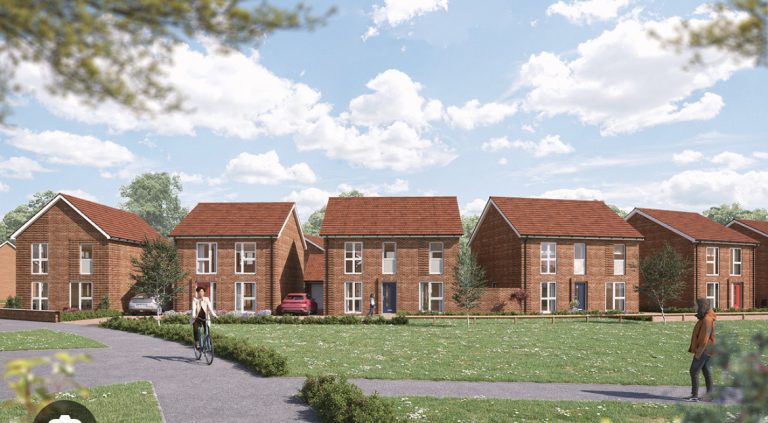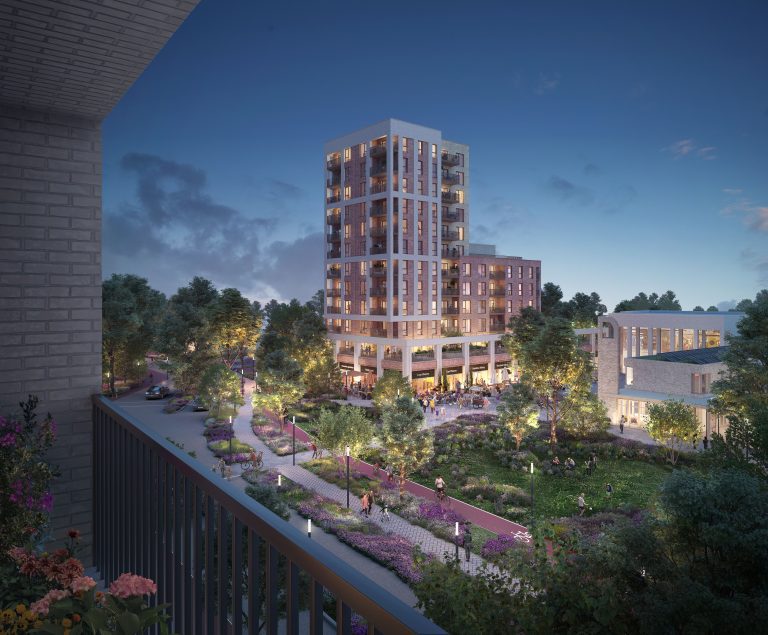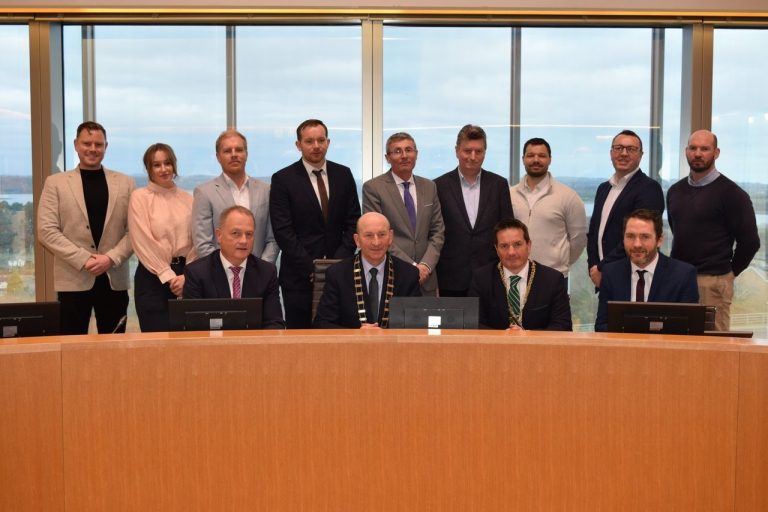Oldham Council has pledged to get 500 new social homes built in the borough over the next five years. The announcement was made at the council’s inaugural Housing Roundtable, which took place at Oldham Civic Centre on Thursday 1 February and was led by Leader of the Council, Cllr Arooj Shah. Senior representatives from all of of Oldham’s major social housing providers were at the event, along with private landlords, letting agents, developers and housebuilders, charities and more. Together with the Council, they discussed Oldham’s housing crisis and how partners can work together to tackle it. Cllr Shah, who is also Cabinet Member for Reform and Regeneration, said: “Nationally, there’s been a growing issue with housing for years and now places like Oldham are bearing the brunt of it. “Thousands of social homes have been sold under right to buy with no government policies in place to replace them. Wages haven’t kept up with house prices or private rents and the cost of living crisis has piled even more pressure on. “I hear from local people every day whose lives are being ruined by this broken housing system. “For me, a home is a place where memories are created, where children and parents are safe and where there is love. “But for far too many families in Oldham, this is not the reality. And we know from our own work in communities that the dire situation is getting worse. “There are more than 7,500 families on the council housing register and thousands of applications waiting to be processed. There are over 500 families in temporary accommodation – and among them are 500 children. That’s 500 kids without their own bed, a place to do their homework, living in places like hotels and B&Bs. It’s tragic. “This is why we have to do everything in our power to respond locally to this national crisis. “With the support of our housing providers, we’ll be building 500 new social homes over the next five years. We have to act now, and we are.” Issues under discussion included the national problems with housing supply, driven by factors such as the high costs of renting and home ownership, the lack of Government funding to invest in social homes, differences in the definition of truly “affordable” homes, and a reduction in the supply of social and affordable housing. Nationally, Government has stopped incentivising developers to build truly affordable homes, with funding provided through the Government’s Affordable Homes Programme (AHP) being slashed. Figures from charity Shelter show that around 39,500 new social houses were delivered nationally in 2010, compared to 6,600 a decade later. At the same time, demand for those homes is increasing, as people are affected by the cost of living crisis and are struggling with rising mortgage interest rates – meaning they may not be able to afford to pay, or get on the housing ladder at all. Among those discussing the reality of the crisis were three members of Oldham Poverty Truth Commission, who shared their own experience of navigating the social housing system. They included Simon Carrigan who said: “I owned my own home but I was cockooed and forced to sell my house and declare myself bankrupt to pay off the debts they said I owed them. I got a social home but they found me and the cuckooing started again. “I asked for help and the housing association tried – but they put bars on the windows and that just trapped me. I had to walk away again. “I’m 41 now and I’m still in poverty because of this. A good life starts with a good home. It’s so important.” Nadia Masood talked about her battles with mould and the lack of action from her landlord to keep up repairs saying: “I have a lot of health conditions and I’m living in a house covered in mould. “I’ve had to rip up the carpets and I’m now living with concrete floors. The buzzer doesn’t work so I never know if there’s someone at the door, the bath leaks and living on my own, I’m trying my best to deal with it, but it’s really hard. It gave me a really serious asthma attack. “I’ve been asking for help since last summer, I’ve done so much myself to try and sort it, but nothing ever happens.” Yaasmin Mughees told the roundtable about facing homelessness with three young children immediately after being granted right to stay in the UK. She said: “I was new to the system and I was scared, I experienced things I wouldn’t expect any human to experience. “I did get temporary accomodation for six months and it was good – but I know the quality of it was far better than where many other people are living. It really hurts to know so many people are living in these situations.” The roundtable discussed housing standards, demand and supply in Oldham and called on partners from across the room to make a commitment to building a local solution to a national crisis. This included: social and private landlords pledging to improve the quality of the homes we already have; letting and estate agents signing up to charters aimed at raising housing standards and developers working with the Council to get spades in the ground. Cllr Elaine Taylor, Cabinet Member for Housing and Licensing, said: “We promised the housing roundtable would put firm plans in place to tackle the housing crisis. “Social housing changes lives, giving people a stable, affordable home – but there’s not enough social homes to go round. “That’s why we’re building more – with the support of our partners – I’m proud to say Oldham will have an additional 500 new social homes for local residents with the highest need. “It’s a huge step in the right direction and we’ll keep bringing people together to make sure Oldham fights its way out of this horrendous housing crisis as soon as possible.” For more information and support with
